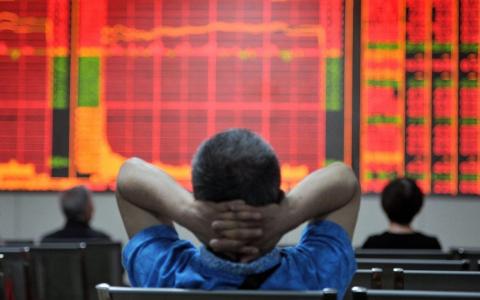
‘What if I suggest the coronavirus, and the consequences of the response, will spell the effective end for financial asset markets — bonds and equity? What if I think that’s probably a good thing?’
That’s the provocative question Bill Blain, strategist at London-based Shard Capital, posed to investors in a Tuesday “Morning Porridge” blog post.
The argument, he wrote, is simple.
“The repression of interest rates to zero and negative real yields has become an absolute disincentive to invest in them,” Blain explained. “The search for yield has pushed investors to take more risk — buying increasingly high-risk corporate debt at lower and lower yields. The effect has been to make businesses less and less efficient as they gorge and grow flabby on cheap debt, while pushing up their stock prices through buy-backs.”
His suggestion: Bypass the stock and bond markets and invest directly into the real economy. “The returns will be better,” he wrote. “And it’s honest.”
Blain said he expects direct investment to grow exponentially in the coming years, whether it’s through private placements, direct lending, secured loans or venture capitalism.
“The trick is to understand the business, its risks and returns,” he wrote. “Anticipating what the virus recovery is going to look like is a great place to start. The decimation of humanity by (this) virus came nowhere close. We’ve been lucky. It could have been much, much worse.”
Whether investors stick with stocks or, as Blain suggests, consider taking a crack at direct exposure, here are several areas he says are worth considering as America gets back on its feet:
— Investments, such as Microsoft and its cloud business, that have cashed in on the new business ecosystem in a post-virus world.
— Firms riding a short-term boost from the crisis by filling a lockdown need, with the potential to maintain their momentum, such as Netflix and its subscriptions surge.
— Those companies getting smacked by disruptions in the supply chain but which are likely to emerge just as strong as ever. Maybe stronger. “We will still buy new i-Phones and even a Tesla when the economy reopens,” Blain predicted.
— Whole sectors that have been oversold on fear. Property, for one. “There is a blithe assumption working-from-home means no-one will ever live in cities again. Wrong,” he said. “If London-resi blips or slows, it’s a buy! The long-term shows it swiftly recovers.”
— The service industry, which has been especially crushed. Look toward investing in hospitality and restaurants. “Despite the panic, I suspect these service sector businesses are best placed to benefit from medium-term low/zero cost govt support, job preservation, and swiftly reopen,” he said.
— Companies poised to fill the void of corporate failures. He pointed to Boeing as an example of a potential changing of the guard. “It’s an opportunity for someone to break the air travel duopoly and build something new and better. I have Embraer’s phone number.”
While he doesn’t see a V-shaped recovery happening, Blain, for the most part, struck an optimistic tone for the future of the economy, if not for the financial markets. “How long is recovery going to take?” he said. “Longer than we hope, but it may prove less damaging than we fear.”
This article originally appeared on MarketWatch.



